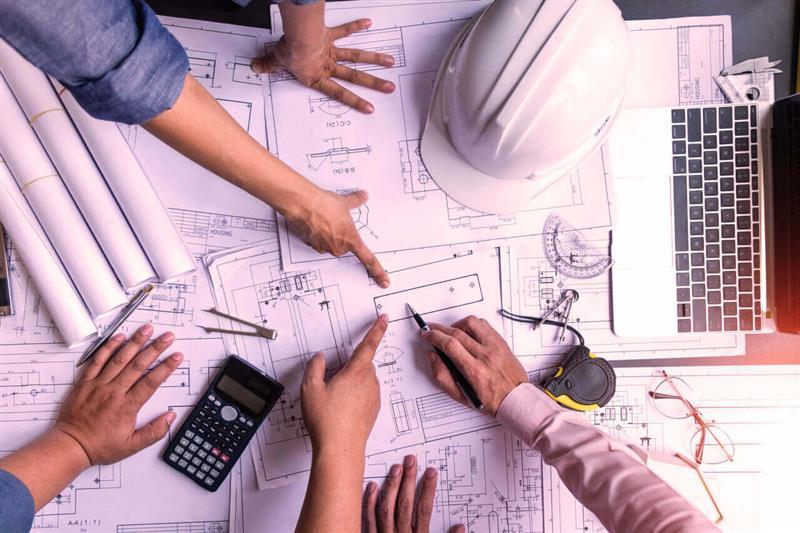In a land where history runs deep and every grain of soil holds stories of empires past, a modern movement is rewriting Iraq’s future—not with ink or ideology, but with concrete, steel, and innovation. Engineering Consultancy in Iraq is no longer just about structures; it's about vision, strategy, sustainability, and social impact. Iraq, emerging from decades of conflict and transformation, is now becoming a canvas for some of the most ambitious engineering endeavors in the Middle East.
Across the vast plains of Mesopotamia, from Baghdad’s bustling streets to Basra’s industrial zones, a new force is rising—one not just of construction but of smart infrastructure, integrated planning, and futuristic design. It's not just about erecting buildings; it's about creating environments where people thrive, economies grow, and futures are forged.
Bridging the Past with the Future
One cannot discuss Iraq without acknowledging its deep architectural and engineering heritage. The nation has long been known for its inventiveness, from the Hanging Gardens of Babylon to the aqueducts of past civilisations. But now, with technology, renewable energy, and sustainable urban planning at the forefront, Iraq’s engineering focus is shifting from preserving monuments to crafting modern marvels.
Key sectors such as transportation, water management, power generation, and urban development are experiencing a surge in innovation. Engineers are increasingly focusing on resilient design to combat regional challenges—be it fluctuating climate, water scarcity, or security constraints.
The Engineers Behind the Revolution
At the heart of this transformation are engineering professionals who blend technical mastery with cultural sensitivity. Local talent, educated both within Iraq and abroad, are returning with global perspectives. Their collaboration with international experts has birthed a new standard in project execution—one that balances cost-efficiency with architectural elegance and structural integrity.
Projects are no longer isolated construction efforts; they are integrated systems. A bridge isn't just a way across water—it’s a lifeline to economic prosperity. A power plant isn't just a grid—it's a signal of energy security and independence.
Technology as the Game-Changer
Where once manual drafting dominated, now 3D modeling, Building Information Modeling (BIM), and AI-driven project management tools are streamlining processes. Drone-based site inspections, cloud-based collaboration, and real-time data monitoring are enabling engineers to operate with precision even in the most logistically complex environments.
This technological infusion doesn’t just increase efficiency—it minimizes waste, optimizes labor, and ensures that safety protocols are followed meticulously, especially in areas still affected by post-conflict conditions.
Sustainable Engineering for Generations Ahead
Sustainability is no longer a buzzword; it's a core principle. In Iraq, where water resources are shrinking and power demand is skyrocketing, engineering solutions must be both green and smart. Solar farms in desert regions, eco-friendly urban drainage systems, and low-carbon cement alternatives are being explored to future-proof the nation’s infrastructure.
There is increasing attention being paid to the integration of renewable energy sources into national power systems. Engineers are evaluating hydro, wind, and solar energy potential—especially in southern Iraq where sunlight is abundant year-round. Smart city projects are also taking shape, aiming to blend technology with human-centric urban planning.
Navigating Challenges with Innovation
Of course, challenges remain. War-related damage is still visible in Iraq's infrastructure. Logistics can be complicated, regulatory hurdles unpredictable, and funding inconsistent. But this is where resilient engineering planning shines—by designing for flexibility, maintaining redundancy, and anticipating the unknown.
Risk management, community engagement, and phased development are key to ensuring that projects are not just completed—but sustained.
A National Transformation in the Making
What sets Iraq apart now is its commitment to rebirth. Engineering companies are becoming more than just service providers; they are key players in a country's reconstruction. Every kilometer of new road, every megawatt added to the grid, and every educational or medical facility built represents hope restored and opportunity created.
In places where rubble once symbolized despair, cranes now signal ambition. Where silence once lingered after conflict, the sound of progress fills the air—metal grinding, machines moving, workers shouting instructions. It’s the heartbeat of rebirth.
Conclusion
Discover how the dynamic landscape of Engineering Consultancy in Iraq is evolving through innovation, sustainability, and strategic development. MUE Group stands at the forefront of this transformation, delivering cutting-edge solutions that empower infrastructure growth, support national goals, and elevate Iraq’s engineering standards to new global heights.




